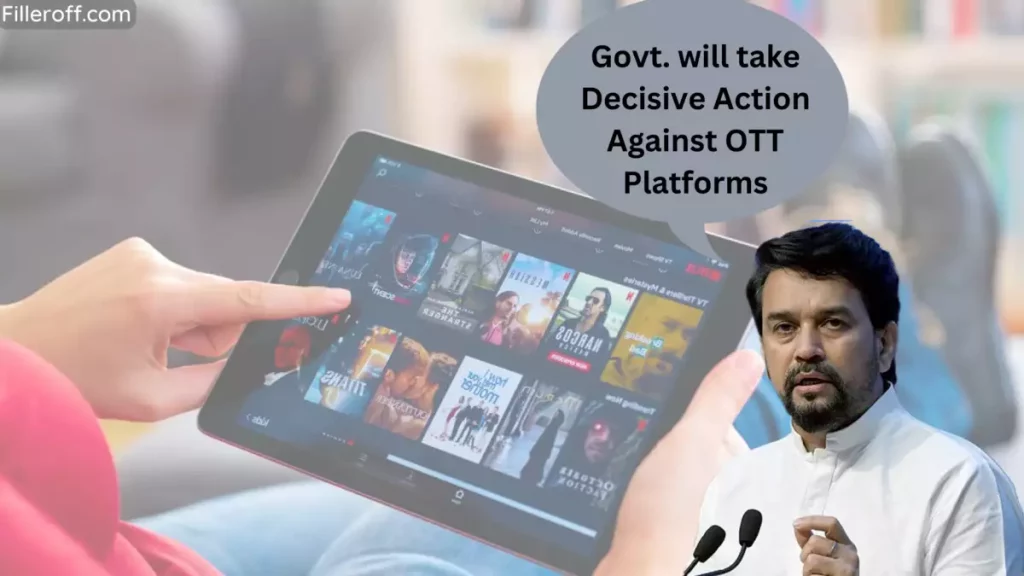The popularity of Over-The-Top (OTT) platforms, such as Netflix, Amazon Prime, and Disney+ Hotstar, has surged in India in recent years, especially during the nationwide lockdown.
However, this has led to a growing debate on the need for regulation due to concerns about the use of vulgar and obscene content. Union Minister for Information and Broadcasting, Anurag Thakur, has warned OTT platforms against the usage of obscene content and abusive language in the name of creativity.
During a press conference on Sunday, Thakur stated that OTT platforms were given freedom for creativity, not obscenity, and that abusive language in the name of creativity would not be tolerated. He further stated that if necessary, the ministry would consider changes to the rules regarding this issue. Thakur also warned that when someone crosses a limit, then abuse or rudeness in the name of creativity cannot be accepted at all, and the government would not back down from taking necessary action.
It is worth noting that the Delhi High Court recently upheld an order for registration of an FIR against The Viral Fever (TVF) and its actor while asking the government to take steps to check the language of the content of OTT platforms. However, the court also stated that the direction to register FIR in the present case does not include a direction to arrest any of the accused/petitioners
The rise of OTT platforms has given viewers access to a wide range of content, including international movies and TV shows, documentaries, and web series. This has led to the emergence of new talents and allowed for greater diversity in storytelling. However, the lack of censorship on these platforms has also led to concerns about the use of vulgar and obscene content, particularly in India, where cultural and social norms are conservative.
The Indian government has been considering the regulation of OTT platforms for some time, with several discussions and debates taking place on the subject. While some argue that censorship could stifle creativity, others believe that some regulation is necessary to prevent the spread of harmful content. The government has stated that it is willing to consider changes to the rules and regulations surrounding OTT platforms, and Thakur’s recent comments suggest that they are taking the issue seriously.
OTT platforms have also faced criticism from traditional media, such as television and film, who argue that the lack of censorship gives them an unfair advantage. They have called for a level playing field, where OTT platforms are subject to the same rules and regulations as traditional media. However, others argue that the rise of OTT platforms has disrupted traditional media and forced them to up their game, resulting in better quality content for viewers.
In conclusion, the rise of OTT platforms has brought about a new era of content consumption, but it has also led to concerns about the use of vulgar and obscene content. The Indian government has been considering the regulation of OTT platforms for some time, and Thakur’s recent comments suggest that they are taking the issue seriously. It remains to be seen what changes will be made, but it is clear that the government is committed to ensuring that OTT platforms use their freedom for creativity, not obscenity.

